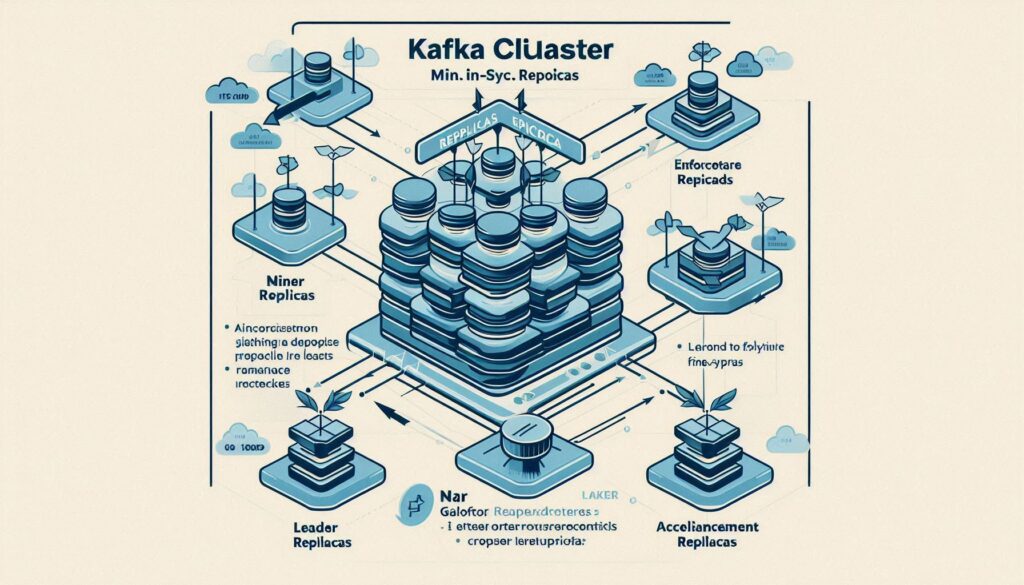Estimated reading time: 4 minutes
As the world of data streaming grows, ensuring the security of your data becomes increasingly important. Apache Kafka is a popular choice for managing high-throughput, real-time data streams, but one question I often hear is, “How secure are Kafka messages?” Today, I’ll walk you through the essential steps to ensure Kafka message security and explore ways to prevent malicious actors from modifying your messages.
What Are Kafka Messages and Why Should I Care About Security?
Apache Kafka is a distributed system that allows for the seamless transfer of messages, or “records,” between producers and consumers. These records are stored in topics, which are partitioned across multiple servers for scalability. This makes Kafka incredibly powerful for real-time data applications. But here’s the catch: Kafka doesn’t offer message encryption by default.
Without proper security measures, malicious actors can intercept, modify, or delete your messages. This is especially dangerous for businesses relying on Kafka for sensitive data, such as financial transactions or private user information.
For more technical details, you can check out Kafka’s official documentation.
Can a Malicious Actor Modify Kafka Messages?
Kafka treats messages as immutable. Once a message is written to a topic, it can’t be modified easily. However, this doesn’t mean Kafka is bulletproof. Several users on a Reddit discussion raised valid points about potential vulnerabilities. For instance, if an attacker gains access to the server disks where Kafka logs are stored, they could technically tamper with the logs. This makes disk-level security critical for Kafka message security.
How to Secure Kafka Messages: Best Practices
1. Enable SSL for Encrypted Communication
First things first: encryption. Although Kafka doesn’t encrypt messages by default, you can enable SSL to encrypt data between clients and brokers. This prevents unauthorized actors from reading the messages in transit. SocketDaddy.com has a great guide on enabling SSL for Kafka, which makes it easy to secure your communication channels.
2. Use Authentication and Authorization
Kafka supports simple and Kerberos-based authentication. I strongly recommend implementing authentication to ensure that only trusted clients can produce or consume messages. You can also set up authorization policies to limit what each user or service can access within Kafka. For detailed steps, visit Kafka Security Documentation.
3. Leverage End-to-End Encryption
While SSL protects messages in transit, it doesn’t secure messages at rest. To protect messages stored on Kafka brokers, I suggest using end-to-end encryption. This means encrypting messages at the producer level and decrypting them at the consumer level. For anyone handling sensitive information, end-to-end encryption is crucial for Kafka message security.
4. Cryptographic Signing for Message Integrity
One thing I always recommend is adding cryptographic signatures to your messages. By signing messages, you ensure that they haven’t been altered after being produced. This is an extra layer of protection to maintain Kafka message integrity.
Protecting Your Kafka Logs from Direct Access
Another concern raised on Reddit was the risk of a malicious actor gaining direct disk access. If an attacker can access Kafka logs at the disk level, they can potentially modify or delete messages. To mitigate this, you should:
- Secure your server environments with disk-level encryption.
- Restrict access to Kafka logs using operating system permissions.
- Use auditing tools to monitor access to the disks where Kafka stores logs.
Securing disk-level access is another piece of the Kafka message security puzzle that ensures no one tampers with your stored data.
Why Kafka Message Security is a Must
I know how essential data integrity is, and Kafka is no exception. Whether you’re streaming financial transactions, medical data, or operational logs, securing those messages is vital. Malicious modifications can cause enormous harm to your business, leading to financial loss, reputational damage, or even legal consequences. With the right security measures in place, you can confidently use Kafka without worrying about the safety of your data.
By taking steps like enabling SSL, using proper authentication, implementing end-to-end encryption, and securing disk-level access, you’re well on your way to achieving strong Kafka message security.
Conclusion: Secure Your Kafka Today
Kafka offers fantastic scalability and performance, but that power comes with responsibility. Don’t leave your Kafka message security to chance. By following these best practices, you can safeguard your Kafka data streams from tampering and malicious threats.
For more insights and guides on Kafka, head over to SocketDaddy.com, where I regularly share tips on Kafka security and other data streaming best practices.





I was more than happy to find this web-site.I wished to thanks in your time for this glorious learn!! I undoubtedly having fun with every little bit of it and I have you bookmarked to take a look at new stuff you weblog post.